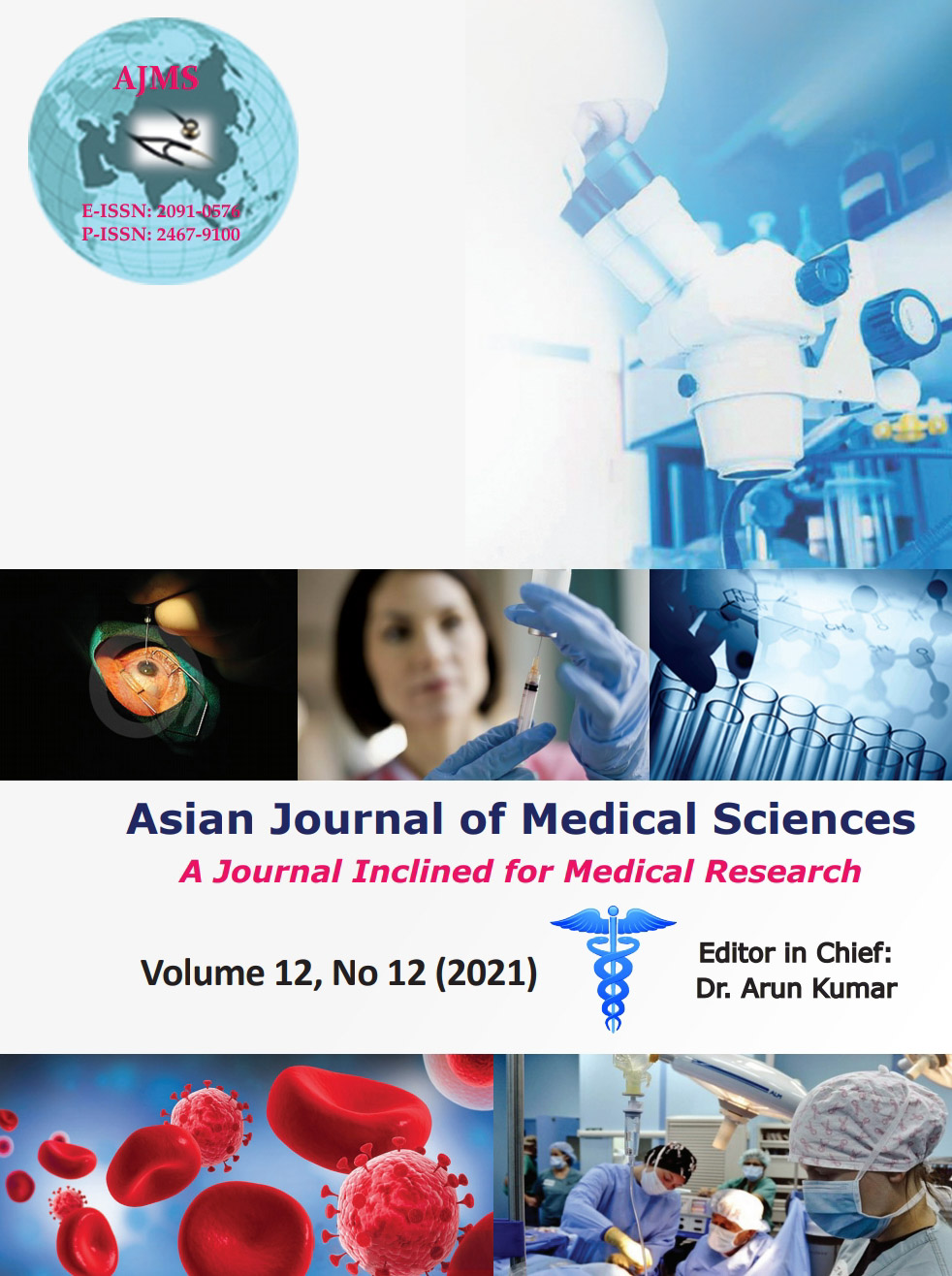Risk of kidney health among returnee Nepali migrant workers: A survey of nephrologists
Keywords:
Acute kidney injury, Chronic kidney disease, Glomerulonephritis, Kidney failure, Kidney health, Migrants, NepalAbstract
Background: Anecdotal reports suggest an increasing prevalence of kidney problems in returnee Nepali migrant workers from the Gulf countries and Malaysia.
Aims and Objectives: This study aims to (a) explore the magnitude of the kidney health-related problems in returnee Nepali migrant workers; and, (b) assess the need for further scientific investigations.
Materials and Methods: This was a self-administered survey of practicing nephrologists in Nepal. All 51 nephrologists working in Nepal (at the time of this study) were approached by email for anonymous participation using an online survey platform. Data were collected between December 2019 and February 2020. Descriptive statistics were generated for data analysis.
Results: A total of 38 nephrologists completed the survey. Almost all their migrant patients were: younger than 40 years, males, from rural areas of Nepal, and had worked in Gulf countries or Malaysia. Most (92.1%) of the respondents reported that the causes behind kidney-related problems of returnee migrant workers were of unknown etiology and less likely to be linked to traditional risk factors. Chronic kidney disease and glomerulonephritis were the most common kidney health-related problems. The vast majority of respondents (76.3%) thought that the returnee migrant workers are at a higher risk of kidney-related problems than the general Nepali population.
Conclusion: Nepali labor migrants in the countries of the Gulf and Malaysia could be at a higher risk of kidney health-related problems than the general Nepali population. Further rigorous scientific investigation is warranted to examine the kidney-health-related risk of Nepali migrant workers.
Downloads
Downloads
Published
How to Cite
Issue
Section
License
Copyright (c) 2021 Asian Journal of Medical Sciences

This work is licensed under a Creative Commons Attribution-NonCommercial 4.0 International License.
Authors who publish with this journal agree to the following terms:
- The journal holds copyright and publishes the work under a Creative Commons CC-BY-NC license that permits use, distribution and reprduction in any medium, provided the original work is properly cited and is not used for commercial purposes. The journal should be recognised as the original publisher of this work.
- Authors are able to enter into separate, additional contractual arrangements for the non-exclusive distribution of the journal's published version of the work (e.g., post it to an institutional repository or publish it in a book), with an acknowledgement of its initial publication in this journal.
- Authors are permitted and encouraged to post their work online (e.g., in institutional repositories or on their website) prior to and during the submission process, as it can lead to productive exchanges, as well as earlier and greater citation of published work (See The Effect of Open Access).




